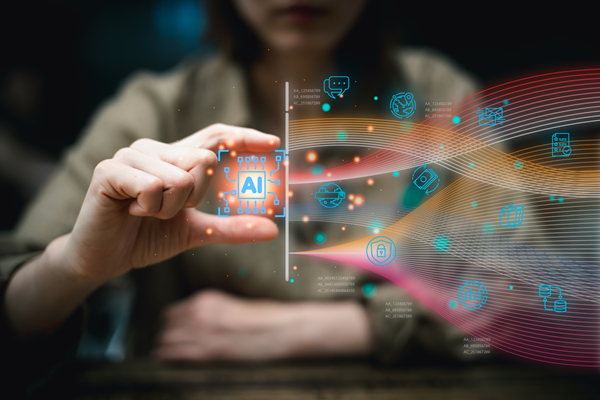The state of AI: A CTO perspective

Recent breakthroughs in artificial intelligence (AI) have led to significant improvements in the capabilities of AI systems. This includes preeminent AI capabilities such as generative AI (gen AI), anchored on large language models (LLMs) such as GPT-4, which can generate human-like conversational text, understand complex queries and assist with a wide range of tasks.
AI and gen AI have diverse applications across industries, from healthcare and finance to entertainment and education. They can automate repetitive tasks, provide insights from large datasets, enhance customer service and even create art and music. Organisations across industries see AI as a path to gain a competitive edge in the global market.
Since AI can optimise operations, reduce costs and create new products and services, it’s fast becoming a major driver of economic growth and innovation. It comes as no surprise that venture capital firms are pouring money into AI startups, while governments and businesses are investing heavily in AI research and development at the same time.
In its 2023 report, The economic potential of generative AI: The next productivity frontier, McKinsey Digital estimated the economic potential of gen AI alone to be between $2.6 trillion and $4.4 trillion annually. These estimates expect an increase in investment in and adoption of AI technologies across various industries, driven by advancements in AI capabilities and the expanding range of AI applications.
As with every new technology, AI has its challenges. These include ethical and privacy concerns, job displacement and the development of appropriate regulations and governance frameworks to ensure that AI is safe, transparent and responsible to use. This is important because AI applications face diverse regulations across industries – data privacy in healthcare, credit scoring in finance and passenger and pedestrian safety with autonomous vehicles, to name a few.
Not everyone agrees with the hype, though. A recent report by Goldman Sachs, aptly titled GenAI: Too much spend, too little benefit, was significantly more circumspect about the potential of AI, with some of the contributors seeing only limited economic upside from AI over the next decade and arguing that the technology isn’t designed to solve the complex problems that would justify its costs.
Sceptics point to the high cost to deploy and run AI applications and chip and power shortages that would constrain AI growth, not to mention low rates of AI adoption by companies, fear of AI-driven cyber-crime, potential harmful impact to the environment and the often-expressed risk considerations spanning ethics, bias and data inaccuracy.
Understandably, we will continue to see considerable volatility in AI technology in the next few years as AI companies seek to offer solutions that balance power and cost to improve business adoption. This contextual overlay is relevant to the question of whether AI is a digital evolution or cultural revolution, or both – or perhaps even neither.
AI: A digital evolution or cultural revolution?
Given that we are all so early in our AI journey, the concerns mentioned above and how rapidly we are trying to move forward, AI has the potential to become a cultural revolution, not just a digital evolution.
When is a tech capability a digital evolution? A new tech capability typically involves innovative approaches or advancements in technology. For any tech capability to be considered a digital evolution, it needs to have a significant impact on businesses. Specifically, the tech needs to be transformational, accessible, offer economic gains and connect with existing technology. And it must be all these things while continuing to evolve.
When is a tech capability a cultural revolution? Technology also becomes a cultural revolution when it profoundly changes societal norms, behaviours and interactions, in addition to transforming business practices and technological landscapes. This is classified by affecting daily lives and human behaviour. AI allows for economic and social equity and impacts education, healthcare and regulations.
To illustrate these points, mobile technology is both a digital evolution and a cultural revolution. AI is on a solid trajectory to also become a foundational element of digital evolution. Its contributions to specific industries such as transportation, finance and healthcare are impressive. Further, gen AI is showing promise as an enabler of pervasive automation, and it could be transformative for certain industries.
However, AI is not yet as mature or widespread due to its ongoing development, complex integration requirements, regulatory and ethical challenges and the specialised nature of many current AI applications. Additionally, the current high cost of implementing AI is formidable, which limits its adoption. As AI continues to evolve and address these hurdles, it will likely reach a similar level of ubiquity and transformative impact as mobile technology.
AI is also undoubtedly shaping culture in significant ways, particularly through its integration into various digital platforms and services, significantly improving customer service via chatbots, not to mention its tremendous potential in learning and education, health and wellness and other socially and culturally impactful areas.
As AI continues to become more integrated into everyday life, its cultural impact is likely to grow. Time will tell, and in two or three years, we will probably have a more developed picture of AI’s readiness as both a foundational cornerstone of digital evolution and a cultural revolution.
At BMC, we continue to push the boundaries to leverage and learn from AI and gen AI through research, our customers and our development. All are driving business value faster than humanly possible.
Click here to learn more
By Ram Chakravarti, Chief Technology Officer, BMC Software

Ram Chakravarti is chief technology officer (CTO) for BMC Software, Inc. In this role, he oversees the BMC Innovation Labs as well as the company’s overall technology strategy, common architecture, corporate development and shared services, including user experience design, quality assurance and cyber-security.

Business Reporter Team
Most Viewed
Winston House, 3rd Floor, Units 306-309, 2-4 Dollis Park, London, N3 1HF
23-29 Hendon Lane, London, N3 1RT
020 8349 4363
© 2024, Lyonsdown Limited. Business Reporter® is a registered trademark of Lyonsdown Ltd. VAT registration number: 830519543





